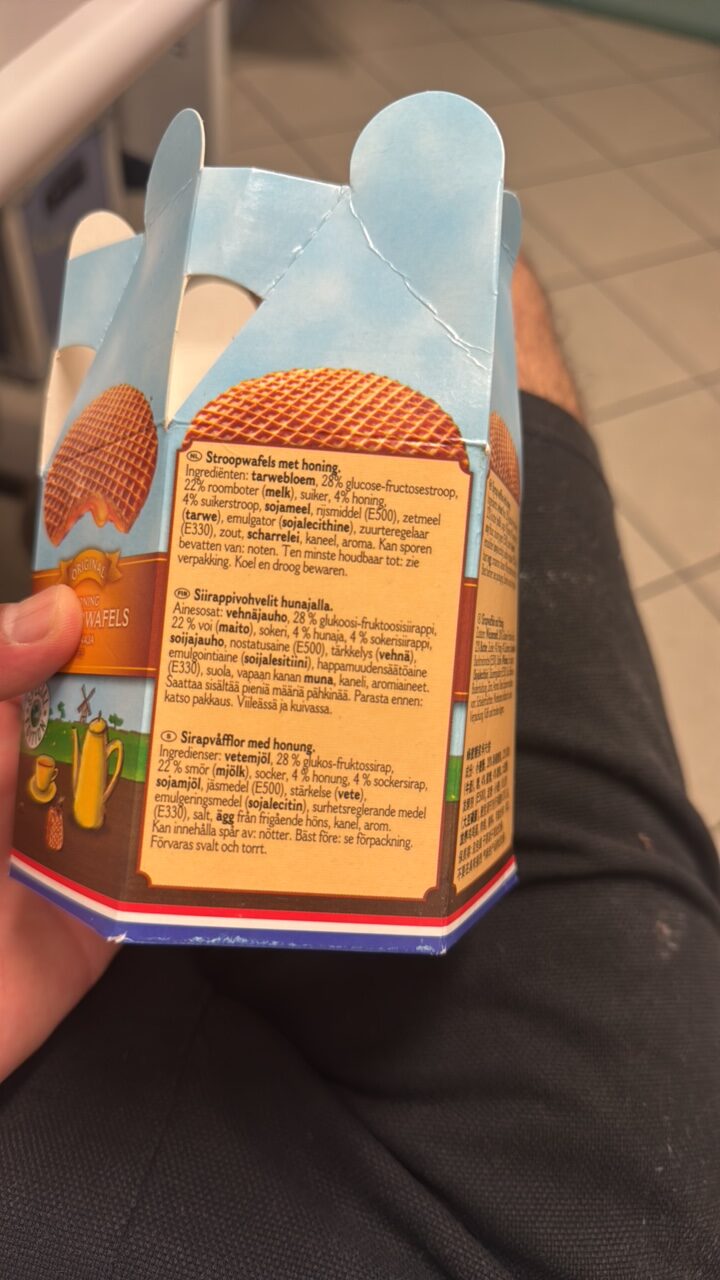
Barcode: 685
stroopwafels met honing
HALAL
📝 Reason: Upon examination of the ingredients, most are plant- or naturally derived and considered Halal. However, ’emulgator’ (emulsifier) and ‘aroma’ (flavour) may be sourced from animals or include alcohol in processing. Without clear Halal certification or details, they are considered Doubtful by Islamic authorities (see IFANCA, Quran 5:3). No Haram ingredient or E-Code was found.
🏷️ Category: Wafels
📄 Certificates: Vegetarisch
Ingredients:
Details
Understanding the Halal Status of Stroopwafels met Honing
When selecting food products, knowing their Halal status is crucial for many consumers. Stroopwafels met honing is a delicious Dutch treat that raises this vital question: Is it Halal? Let’s dive into the specifics and ingredients to clarify this.
Halal Certification and Status Overview
According to Islamic dietary laws, Stroopwafels met honing is considered Halal based on its ingredient composition. The majority of ingredients used in this product are plant-derived or naturally obtained, which aligns with Halal standards. However, certain components, specifically the ’emulgator’ (emulsifier) and ‘aroma’ (flavour), require closer examination due to potential animal sources or alcohol processing.
Ingredient Breakdown
Let’s discuss the individual ingredients to understand their Halal status:
- Tarwebloem (Wheat Flour): Plant-derived and Halal.
- Glucose-fructosestroop (Glucose-Fructose Syrup): Sourced from plant starch, such as maize or wheat, and also Halal.
- Roomboter (Butter): Derived from cow’s milk, typically Halal unless contaminated with Haram additives.
- Suiker (Sugar): Naturally Halal as it comes from plant sources.
- Honing (Honey): Directly Halal as per Islamic laws regarding honey.
- Suikerstroop (Sugar Syrup): Halal, originating from plant sources.
- Sojameel (Soy Flour): Plant-based and Halal by nature.
- Rijsmiddel (Leavening Agent): Halal if sourced from standard baking components and no Haram ingredients are involved.
- Zetmeel (Starch): Extracted from plants, making it Halal.
- Emulgator (Emulsifier): Potentially sourced from either animal or plant; without specific Halal certifications, it remains a doubtful ingredient.
- Zuurteregelaar (Acidity Regulator): Typically Halal unless containing objectionable E-Code ingredients.
- Zout (Salt): Naturally Halal.
- Scharrelei (Free-range Eggs): Generally considered Halal unless they are contaminated.
- Kaneel (Cinnamon): A Halal spice, derived from plants.
- Aroma (Flavoring): May originate from animal or plant sources. Without Halal certification, it’s regarded as doubtful.
Conclusion: Is Stroopwafels met Honing Halal?
In conclusion, Stroopwafels met honing overall can be classified as Halal based on its primary ingredients. The only concerns arise from the emulsifier and aroma, which require specific Halal certifications for complete assurance. For consumers prioritizing Halal dietary laws, this product is primarily safe, barring uncertainties with those two components.
For additional assurance, always consult relevant Halal certification bodies or retailers when purchasing products like Stroopwafels met honing to confirm their Halal status based on your dietary requirements.
